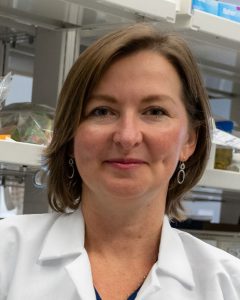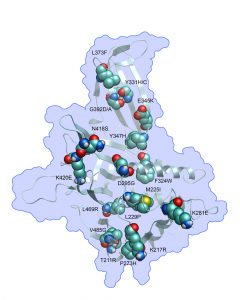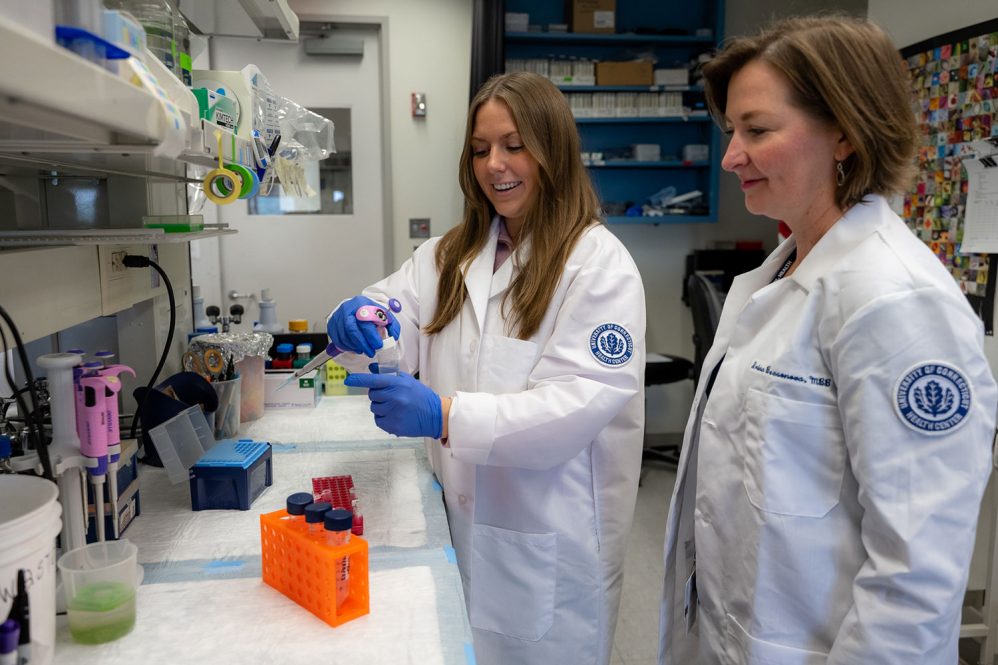Hao-Fountain syndrome, a rare genetic disorder with ties to developmental delays, is the focus of structural biologist Irina Bezsonova, now backed by a grant from the Foundation for USP7 Related Diseases.

Started in 2017 by a group of parents with a mission to cure Hao-Fountain syndrome by identifying patients and funding research, the Foundation for USP7 Related Diseases is awarding $50,000 to support Bezsonova’s studies.
Mutations in the USP7 gene cause Hao-Fountain syndrome, which leads to autism spectrum disorder, increased prevalence of epilepsy, developmental delay and/or intellectual disability, abnormal brain MRIs, speech impairment, hypotonia, gastrointestinal issues, and eye anomalies.
“My research laboratory has been investigating the role of USP7 in cancer since 2010, focusing on molecular mechanisms of regulation of this enzyme’s function,” says Bezsonova, an associate professor of molecular biology and biophysics.
Bezsonova’s lab will test the effect of individual patient mutations on the enzymatic activity of USP7, and test whether it can be rescued with either inhibitors or activators of the enzyme. Her studies will create a functional catalog of Hao-Fountain syndrome-causing mutations and will provide potential therapeutic strategies for personalized treatment of the disease.

“Our goal has always been to move as rapidly as possible toward a cure or treatment for Hao-Fountain syndrome,” says Bo Bigelow, chairman and co-founder of the Foundation for USP7 Related Diseases. “We’re thrilled that this groundbreaking work with Dr. Bezsonova’s team will help us understand these USP7 mutations and whether we can do anything to rescue them.”
The nonprofit, based in Falmouth, Maine, says the grant stems from many years of fundraising, with hundreds of donations from all over the world, including from its sister organization in France, Manger La Vie, which also seeks to cure Hao-Fountain Syndrome.
The Foundation for USP7 Related Diseases says there are only approximately 200 known Hao-Fountain Syndrome patients worldwide.
“A recent discovery of the Hao-Fountain syndrome and tremendous efforts by the Foundation for USP7 Related Diseases revealed that USP7 also plays an important role in neurodevelopment; however, the mechanism of the disease remains unknown, which prevents the discovery of potential treatments,” Bezsonova says. “The generous grant by the foundation will allow us to test how individual patient-derived mutations of USP7 affect its function. These studies will provide the necessary first step toward a better understanding of the disease and the basis for the development of effective therapies for Hao-Fountain syndrome in the future.”



